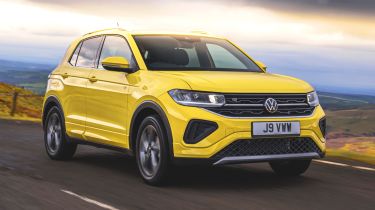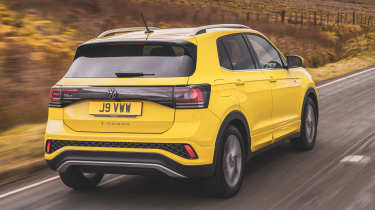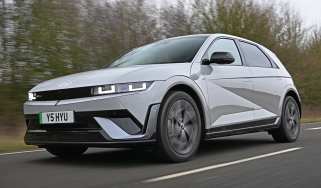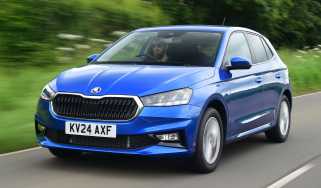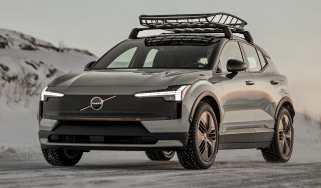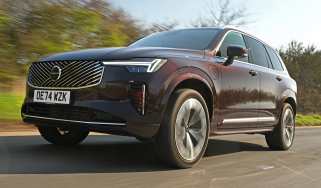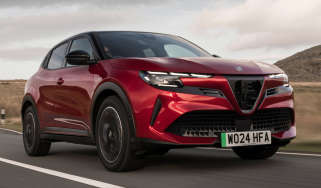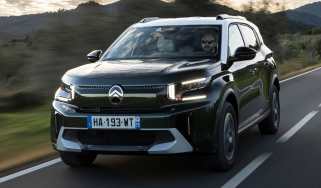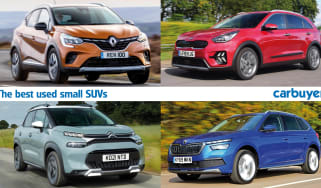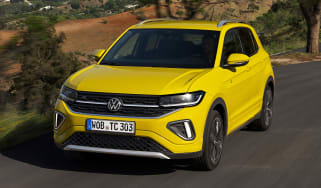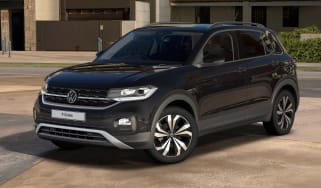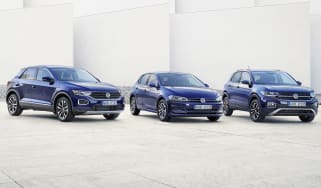Volkswagen T-Cross review – a well-equipped small SUV
“The Volkswagen T-Cross is one of the class leaders in the small SUV sector”
Pros
- Spacious
- Well-equipped
- Desirable badge
Cons
- Expensive top models
- Polo costs less
- No hybrid model
Verdict - is the Volkswagen T-Cross a good car?
The Volkswagen T-Cross certainly isn’t the first small SUV, but it’s now one of the ones to beat. It offers an impressive blend of style, comfort and peppy engines. The fact it’s based on the Volkswagen Polo is easy to detect from behind the wheel – there’s a similar relaxed nature to its road manners, and the T-Cross behaves better on the motorway than you might expect for a small crossover. The latest Move trim means it’s also more affordable. But, this is a crowded class, and which small SUV you pick may ultimately come down to which is offered with the best PCP deal, or what powertrain you’d prefer.
Volkswagen T-Cross models, specs and alternatives
The Volkswagen T-Cross is yet another small SUV from the German manufacturer, slotting in just below the T-Roc and alongside the Taigo with its coupe-style roof. It seems as though Volkswagen has every SUV niche covered, but as the cheapest of the lot, the Volkswagen T-Cross aims to offer more practicality and a higher ride height than a conventional supermini, for a better view of the road ahead.
Small SUVs have boomed in popularity in recent times, so the T-Cross isn’t without rivals. Its most direct competitors are the Ford Puma, Renault Captur, Nissan Juke, Hyundai Bayon and Citroen C3 Aircross, as well as cars with which it shares a platform, such as the Skoda Kamiq and SEAT Arona. Those sister cars are essentially high-riding versions of the Skoda Fabia and SEAT Ibiza hatchbacks, much like what the T-Cross is to the Polo, so the T-Cross is a natural step up from that car. If you’d prefer a hybrid, the Toyota Yaris Cross is also likely to appeal.
Volkswagen facelifted the Volkswagen T-Cross in 2023 to keep it competitive against rivals. This revision included a few exterior tweaks such as redesigned bumpers with lower air intakes, and the introduction of Volkswagen’s latest Matrix LED technology on some models. On the inside, Volkswagen slightly improved material quality.
As part of the facelift, an eight-inch infotainment screen and digital gauge cluster are offered as standard. The T-Cross is currently offered in four different trims, starting with Life, moving up through Match and Style to the sporty-looking flagship R-Line model.
The T-Cross combines VW’s typical sturdiness and planted feel with light steering that’s perfect in tight city streets. The T-Cross continues to drive well at speed without feeling too twitchy, which can be a side effect of light steering. It’s refined even up to motorway speeds, and keeps its composure over most bumps and small potholes. VW has certainly prioritised comfort over sportiness, which is what most small SUV buyers will prefer.
The 1.0-litre three-cylinder engine can occasionally feel sluggish below 2,500rpm, which means you’ll have to rev it hard sometimes – when joining a motorway, for example. Volkswagen introduced a punchier 148bhp 1.5-litre petrol engine at the start of 2020 but in truth, the 108bhp 1.0-litre engine will suit most buyers, and the larger engine is only available with top trim levels. The T-Cross has the option of a smooth DSG automatic gearbox – it’s a bit more expensive, but could be a great choice if you do most of your journeys in stop-start traffic.
The 1.0-litre petrol returns around 49mpg. This is pretty similar to most of its rivals but the DSG automatic does increase fuel consumption to around 45mpg. You’ll get a similar figure from the 148bhp petrol engine. A diesel engine was briefly available but it was expensive and wasn’t much more economical than the smaller petrol options.
Despite its size, the T-Cross offers space for five, and adults should be comfy in the outer rear seats thanks to lots more headroom than in the Polo. The rear seats slide forwards and backwards, so you can choose whether you want more space for passengers or luggage. It has a big boot, regardless of where you have the back seats, while those in the front will enjoy a classy dashboard with a standard eight-inch infotainment touchscreen.
Which Is Best?
Cheapest
- Name1.0 TSI Life 5dr
- Gearbox typeManual
- RRP£25,750
Most Economical
- Name1.0 TSI Life 5dr
- Gearbox typeManual
- RRP£25,750
Fastest
- Name1.5 TSI Style 5dr DSG
- Gearbox typeAuto
- RRP£32,355
